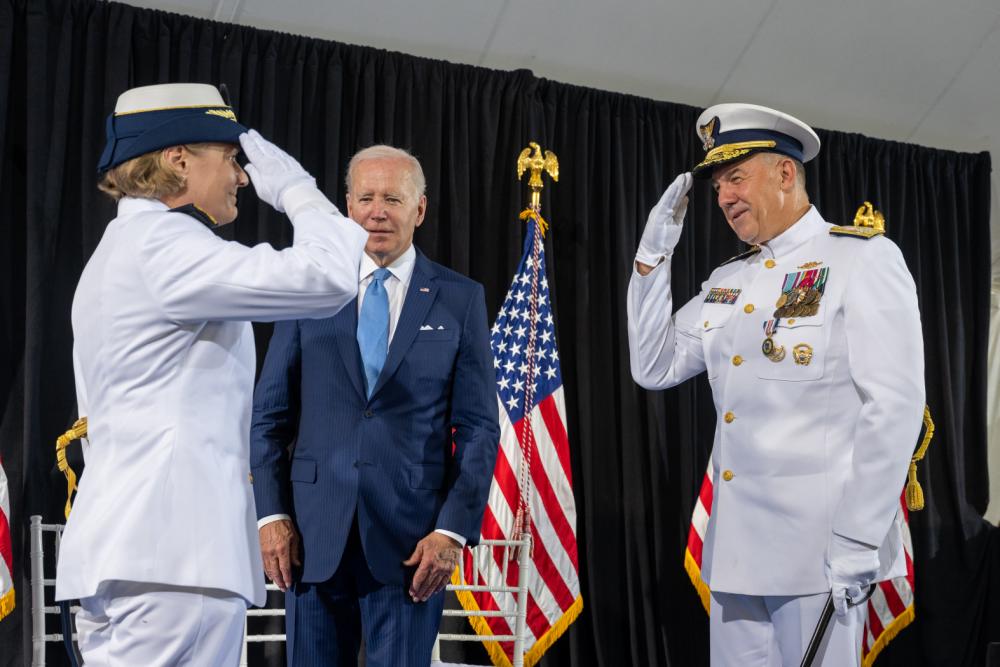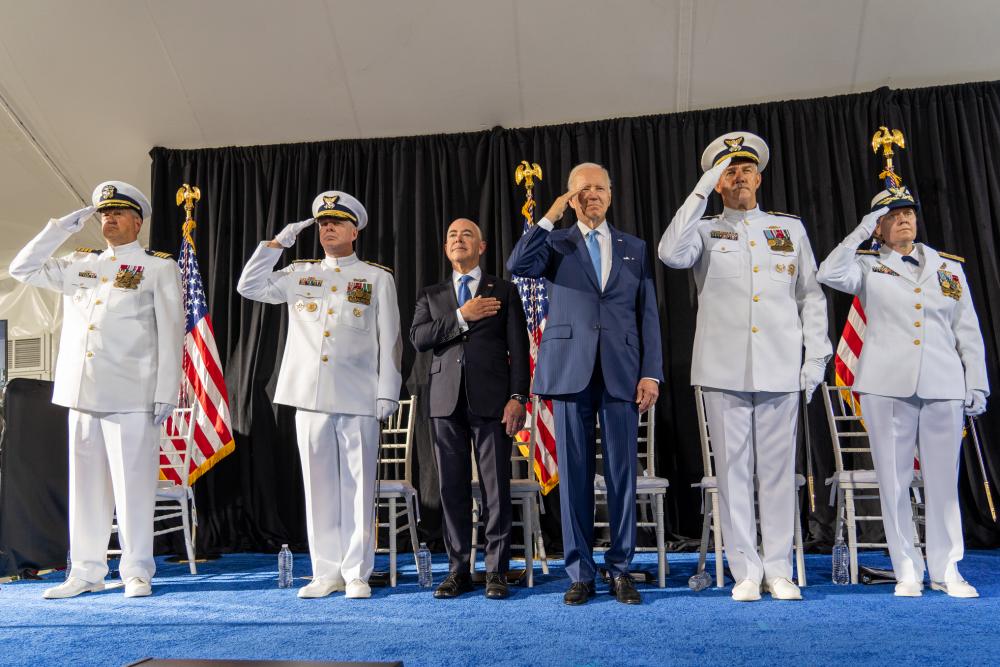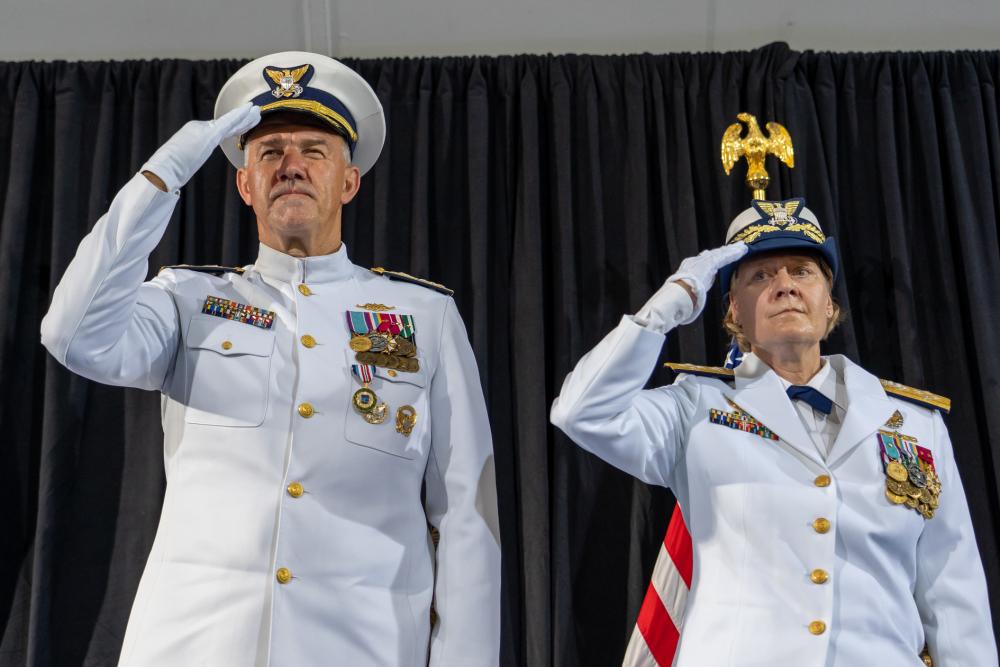A changing Arctic could bring ‘potential conflict,’ Biden says
“The Arctic is going to change drastically,” the president said at a U.S. Coast Guard change of command ceremony.

WASHINGTON—As climate change causes unprecedented environmental upheaval in the Arctic, it also opens the region to potential conflict, President Joe Biden said on Wednesday.
“The Arctic is going to change drastically,” he said, becoming “a place that is going to also potentially generate potential conflict, in terms of dominating the Arctic as it melts.”
Biden spoke at the U.S. Coast Guard change of command ceremony at the national headquarters, as Adm. Linda Fagan took over from Adm. Karl Schultz as commandant of the Coast Guard. Fagan is the first woman to hold the chief position of any U.S. military service.
As climate change brings “more extreme weather and growing migration flows,” the Coast Guard will assume a greater role in maintaining maritime security and a rules-based international order and keeping sea lanes open and protected, Biden said.
The U.S. Coast Guard is the only U.S. service with a regular surface presence in the Arctic, and its leaders have advocated for the rapid recapitalization of the aging U.S. icebreaker fleet, a process that has encountered delays.
While Biden has frequently invoked the Arctic in discussions of climate change, he has rarely mentioned it in other contexts, including the potential for conflict in the region.
“Hearing Biden say something about it in public, that’s new,” said Jim Townsend, former deputy assistant secretary of defense for Europe and NATO policy and a fellow at the Center for a New American Security.
Changes in the Arctic have long been watched by U.S. officials, including during Townsend’s tenure during the Obama administration, but it is rising in prominence, particularly in light of seismic shifts in geopolitics following Russia’s invasion of Ukraine.
Neighboring Sweden and Finland have applied for NATO membership, and the seven other nations of the Arctic Council temporarily paused their collaborative work in an unprecedented move.
When that work resumes, all members of the Arctic Council will also be NATO members, save for Russia, and Arctic nations will have a stronger presence in NATO, potentially influencing the alliance’s approach to the North.
U.S. Army forces in Alaska are also undergoing an identity shift, with a stronger focus on the Arctic identity of the state and the nation.
“Whether it’s Alaska or whether it’s over Europe, the Arctic is potentially a very busy place,” Townsend said. “With the sea ice melting, it’s not just a climate issue and catastrophe on its own, but it also begins to make those regions of the world flashpoints.”
Conflict could also arise over softer security concerns, including who can claim and extract resources.
“The Russians themselves are going to need the Arctic even more because of the resources up there to try to recover their economy” after sanctions, Townsend said. That may include greater investment from China, further affecting the geopolitical balance in the region.
In the past, during World War Two and the Cold War, the Arctic was important militarily to provide support for action largely happening elsewhere — not necessarily as the site of military operations itself.
As Biden’s comments signal, that could be changing.
“With climate change opening up the Northern Sea Route above Russia, and also potentially making vulnerable some of Russia’s strategic nuclear capability up in the Northern Fleet area, up there above Norway, it makes the Arctic now even more strategically important and vulnerable,” Townsend said.
The war in Ukraine is also causing Russia to look to the Arctic as a place where it is still dominant militarily, Townsend said, which means it may strengthen its northern presence and capabilities to continue projecting power.
The Arctic has long been seen as a zone of peace and collaboration, and it’s important not to overstate the potential for conflict, Townsend said. At the same time, it’s imperative to keep an eye on a region that is changing rapidly in its physical and political environment.
“Whether one thinks it’s understated or overstated, the point is that we’ve got to be aware up there,” Townsend said. “We have to have situational awareness and try to make judgments based on what we’re seeing and what the potential could be.”

